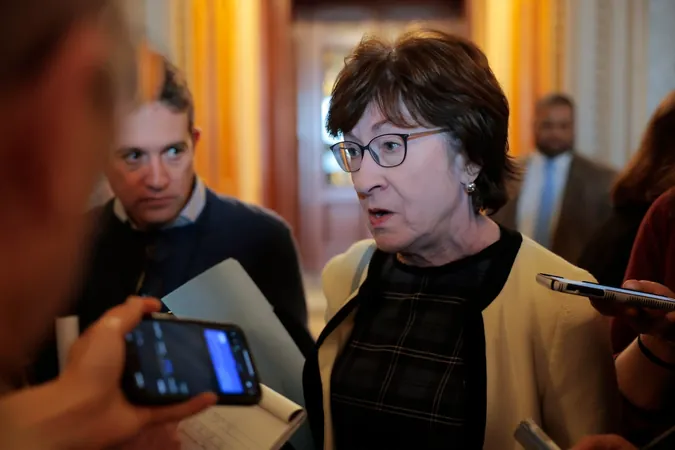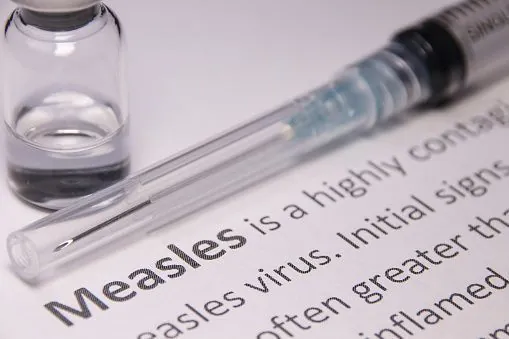
Bipartisan Senators Rally Against Trump's Canadian Tariffs: Is the President's 'Emergency' Justified?
2025-04-01
Author: Amelia
Bipartisan Senators Rally Against Trump's Canadian Tariffs: Is the President's 'Emergency' Justified?
A broad coalition of U.S. senators from both parties is gearing up to challenge President Donald Trump’s recent decision to impose tariffs on Canadian goods, marking a potentially historic Republican critique of Trump's administration during his second term. This push reflects growing concerns over the economic ramifications of the tariffs as well as the validity of the White House's claims regarding the flow of fentanyl from Canada.
On a decisive vote scheduled for Tuesday, senators will consider a resolution intended to revoke the national emergency declared by Trump regarding the influx of illicit fentanyl crossing the U.S.-Canada border. This declaration enabled the President to exert special executive powers, circumventing Congress’s traditional authority over foreign trade and tariff regulations.
Republican Senator Susan Collins of Maine has publicly announced her support for the resolution, following a discussion about the critical economic ties between Maine and Canada. In her remarks, Collins dismissed the White House's assertions, asserting, 'Canada is not the problem.'
In a show of defiance, Trump responded to the resolution on social media, urging his fellow Republicans not to back it and warning that doing so would signal weakness for the party. 'Don't let the Democrats have a Victory,' he claimed, asserting that progress had been made in controlling fentanyl trafficking, and framing the tariffs as part of a broader effort to combat drug-related crises in the U.S.
One Republican, Senator Rand Paul from Kentucky, has also indicated his support for the measure, highlighting his long-standing position against emergency powers that bypass Congress. Reports suggest that North Carolina Senator Thom Tillis is also in favor, while Iowa Senator Chuck Grassley remains undecided.
The upcoming vote carries weighty implications. If all 47 Democratic senators side with the resolution, it will necessitate at least four Republican votes to secure passage in the Republican-majority Senate. Although passing the Senate is a crucial step, the road ahead is fraught with challenges. An earlier vote in the House this month has created obstacles for any further challenge against Trump’s tariffs.
Virginia Senator Tim Kaine, who spearheaded the resolution, emphasized that the vote is vital for senators to demonstrate their stances on the tariffs, particularly amidst increasing pressure from constituents facing the economic fallout from the trade policies. Kaine has described the rationale for the tariffs as 'specious,' noting that the small volume of fentanyl seized from Canada does not justify such drastic measures.
Data cited by the White House points to an alarming rise in fentanyl interceptions at the northern border, but investigations have revealed that a significant portion of these seizures is linked to Mexico, calling into question the narrative that Canada poses a significant threat. Democratic Senator Chris Coons expressed similar sentiments, pointing out that Canada is Delaware’s largest trade partner, and he has also been contacted by many constituents against the tariffs.
The broader landscape reveals that while the U.S. grapples with a fentanyl crisis, the root causes lie predominantly in drug trafficking networks, particularly those operating from Mexico. Figures from the southern border demonstrate a stark contrast—in a recent fiscal year, over 21,100 pounds of fentanyl were seized from that region alone, overshadowing the 43-pound figure cited for Canada.
Senator Kaine has challenged the legitimacy of Trumps's use of emergency powers under the International Emergency Economic Powers Act (IEEPA), positing that it is inappropriate to apply such measures against a friendly nation. IEEPA was initially crafted for use against hostile entities, and its current application against Canada raises ethical concerns, according to critics.
Responding to the backlash, White House spokesperson Kush Desai defended Trump's emergency declaration, asserting the administration's commitment to mitigating the fentanyl crisis and its comprehensive strategy to address the issue.
As the vote looms, it remains to be seen whether Republican senators will break ranks with their President or if Trump's grip on party loyalty will prevail. One thing is clear: the unfolding drama surrounding the Canadian tariffs could redefine the political landscape and signal fissures within the Republican Party.









 Brasil (PT)
Brasil (PT)
 Canada (EN)
Canada (EN)
 Chile (ES)
Chile (ES)
 Česko (CS)
Česko (CS)
 대한민국 (KO)
대한민국 (KO)
 España (ES)
España (ES)
 France (FR)
France (FR)
 Hong Kong (EN)
Hong Kong (EN)
 Italia (IT)
Italia (IT)
 日本 (JA)
日本 (JA)
 Magyarország (HU)
Magyarország (HU)
 Norge (NO)
Norge (NO)
 Polska (PL)
Polska (PL)
 Schweiz (DE)
Schweiz (DE)
 Singapore (EN)
Singapore (EN)
 Sverige (SV)
Sverige (SV)
 Suomi (FI)
Suomi (FI)
 Türkiye (TR)
Türkiye (TR)
 الإمارات العربية المتحدة (AR)
الإمارات العربية المتحدة (AR)